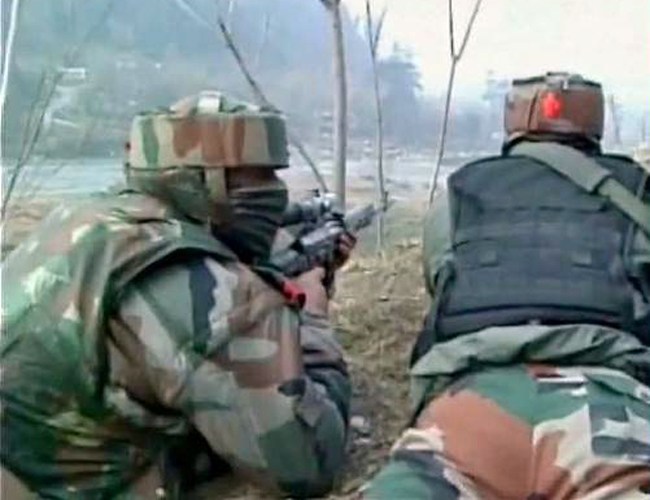
The dawn attack on 18 Sep on the army’s Uri camp by Pakistan-trained militants resulted in 17 troops killed and 30 more wounded. The fact that attackers were four in number, has attracted the attention of the media, which labels them as terrorists, while politicians term the attack as cowardly.There are some issues which need consideration.
First, army troops who operate are doing their duty, and in the face of ever-present threat of attack with attacker’s identity, direction, mode and time all unknown, this undoubtedly calls for courage and fortitude. But it also calls for training and leadership-on-the-ground, and very importantly, for the individual soldier’s confidence that in case of death or permanent disability, the country will look after them. Without doubt, our troops are well-trained (they could be better equipped, though) and well-led, but the confidence that the country will look after them is lacking. Suffice it to say that our country’s top politicians are seen as lacking in will to give the Jawan his due for uncomplainingly facing targetted risk and hardship with courage and fortitude. They are being (willingly?) misled by bureaucrats, most of whom know no hardship beyond failure of air-conditioning in offices or homes, and no risk beyond crossing a busy road on foot.
Second, labelling the Uri camp attackers as terrorists is erroneous. They are armed militants attacking with suicidal intent. Calling them “terrorist” implies that they struck terror among the army jawans, which they certainly did not. Our matchless Jawan is afraid of nobody, leave alone being terrified, and the country can rest assured that he will perform his duty come what may. Military training includes preparation for such attacks, as they are to be expected. However, the initiative is always on the side of the attacker, and (especially suicide) attacks can only be reacted to if they cannot be prevented or preempted. Preparation is for watchfulness (including intelligence and surveillance), obstacles to attackers, early detection, immediate reaction, neutralization, minimizing casualties and losses, and damage control. Suffering casualties is a part of the risk, and this brings us back to the point of providing adequate cover to the Jawan who is killed or permanently disabled; adequate pay-and-allowances to those who remain unhurt; post-retirement employment or adequate pension to those who retire at 38-years age; and most importantly the izzat of being a soldier, displayed in government officials’ behaviour in his native village or town.
Third, calling the attack “cowardly”. Anybody with knowledge of history would know that a small force will never confront a more powerful force. It would always plan and execute strikes at a superior force in a manner and at a time that is least expected, and vanish as quickly as possible. When the attackers are trained and equipped to cause maximum casualties and damage, and motivated to neglect the certain consequence of their own death, injury or capture, they are even more difficult to deal with. Attributing cowardice to such attacks is to not understand the real-life situations. It may score brownie points with others equally ignorant, but it carries no weight with the courageous Jawan, who never under-estimates the enemy’s courage and even respects the enemy.
Finally, there are hawks even among Veterans, calling for retaliatory attack, surgical strike, etc. on Pakistan, because only four attackers caused so many casualties among our troops. The audacious Uri attack certainly calls for review and upgradation of the perimeter security of encampments and establishments, accompanied by inquiry into whether there was shortfall in security measures, or in execution of procedures or drills. Equally certainly it also calls for consideration of calibrated, thought-through measures at the highest military and political-diplomatic levels, including calculating the risk of nuclear retaliation by Pakistan, or the Chinese opening a second front. Just as this is no time for pussy-footing, it is also not the time for empty political speeches. India’s Fauj, as it always has been, is ready for action. What action is to be taken and how and when, is a matter for immediate and very close and continuous consultation between politicians, bureaucrats, and most importantly, military Service Chiefs, who have hitherto effectively been kept “out of the loop” by the NSA. It is time for the PM to understand (his predecessor failed to do so) that having a Fauji member on the National Security Council with responsibility as advisor on external security, is in the national interest. National security will be inadequate or ineffective if he restricts himself to single-pointed advice of Mr. Doval.
(Major General S.G. Vombatkere, VSM, retired as Additional DG Discipline & Vigilance in Army HQ AG’s Branch. He is a member of the National Alliance of People’s Movements (NAPM) and People’s Union for Civil Liberties (PUCL). With over 500 published papers in national and international journals and seminars, his area of interest is strategic and development-related issues. E-mail: sg9kere@live.com)
This article was first published on countercurrents.org